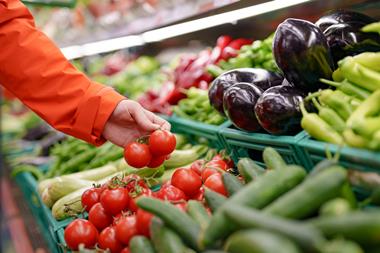
The government has refused to answer questions from farming groups on the modelling of its proposed changes to Inheritance Tax liabilities for farm businesses, claiming it is not in the public interest.
The NFU and the Country Land & Business Association both submitted individual freedom of information requests to the government earlier this year, asking for clarification on the modelling the Treasury used to dismiss alternatives to the so-called family farm tax – which has prompted a series of farmer protests since the policy was announced in Chancellor Rachel Reeves’ budget last October.
The organisations presented the government with an alternative to the current Inheritance Tax plans – a ‘clawback’ option that would tax businesses at the full 40% Inheritance Tax rate, but only if sold by a family successor within seven years of the owner’s death.
The farming groups said this would offer a “more finessed policy”, both meeting the government’s money-raising objectives while avoiding damage to family farms.
The Treasury has said such a move would raise “much less” than its current proposals but has refused to release the modelling for that conclusion, even after both groups submitted FOI requests.
The government department stated that the information would not be in the public interest.
Read more: Efra committee calls on government to halt IHT reforms until 2027
“The family farm tax is cruel, unfit to become legislation and is triggering a crisis of confidence across the farming sector,” said NFU president Tom Bradshaw. “As we outlined in our spending review proposals, one of the most significant actions the Chancellor could take to restore trust and unlock investment and growth is to urgently review the clawback proposal.”
The groups have now written to the Chancellor calling for transparency on the reforms to Business Property Relief and Agricultural Property Relief.
They said the government’s dismissal of the alternative policy and refusal to share analysis had undermined business trust in policymaking, especially as the Office of Budget Responsibility, which ministers continue to cite for support, describes the government’s figures as “highly uncertain”.
The letter has urged the Treasury to publish its analysis of the reforms and the clawback alternative to allow for proper public scrutiny.
“As highlighted in the joint industry letter, publishing the government’s analysis of alternative Inheritance Tax reform options and engaging in constructive dialogue around a more targeted approach would be a strong first step in the right direction,” said Bradshaw.
The policy was also challenged by the Efra select committee last week, which said the government should pause rollout until 2027.
The Treasury reiterated its position that the reforms would only impact on a small number of farms (520) when approached by The Grocer this week. “Almost three-quarters of estates claiming agricultural property relief, including those that also claim for business property relief, will not pay any more tax as a result of the changes in 2026-27, based on the latest available data,” it said.
“The Government disagrees with suggestions that a clawback would raise the same revenue as the reforms being introduced from 6 April 2026; it would raise much less, which would mean raising taxes elsewhere or lowering public spending,” The Treasury added.
“It would also add complexity to the tax system and continue to attract the very wealthiest to tax plan since beneficiaries could hold onto the assets over the specified clawback period just to escape the tax.”
Yesterday the government announced that it would make chnges to its winter fuel allowance policy which Bradshaw said showed “the government is willing to listen to concerns about the elderly”.
“We’re now urging them to extend that same support to elderly farmers who have spent their lives feeding the nation, and who now find themselves in an incredibly difficult position,” he said. “Many are deeply worried not just about their own future but about becoming a financial burden on their families.”



















No comments yet